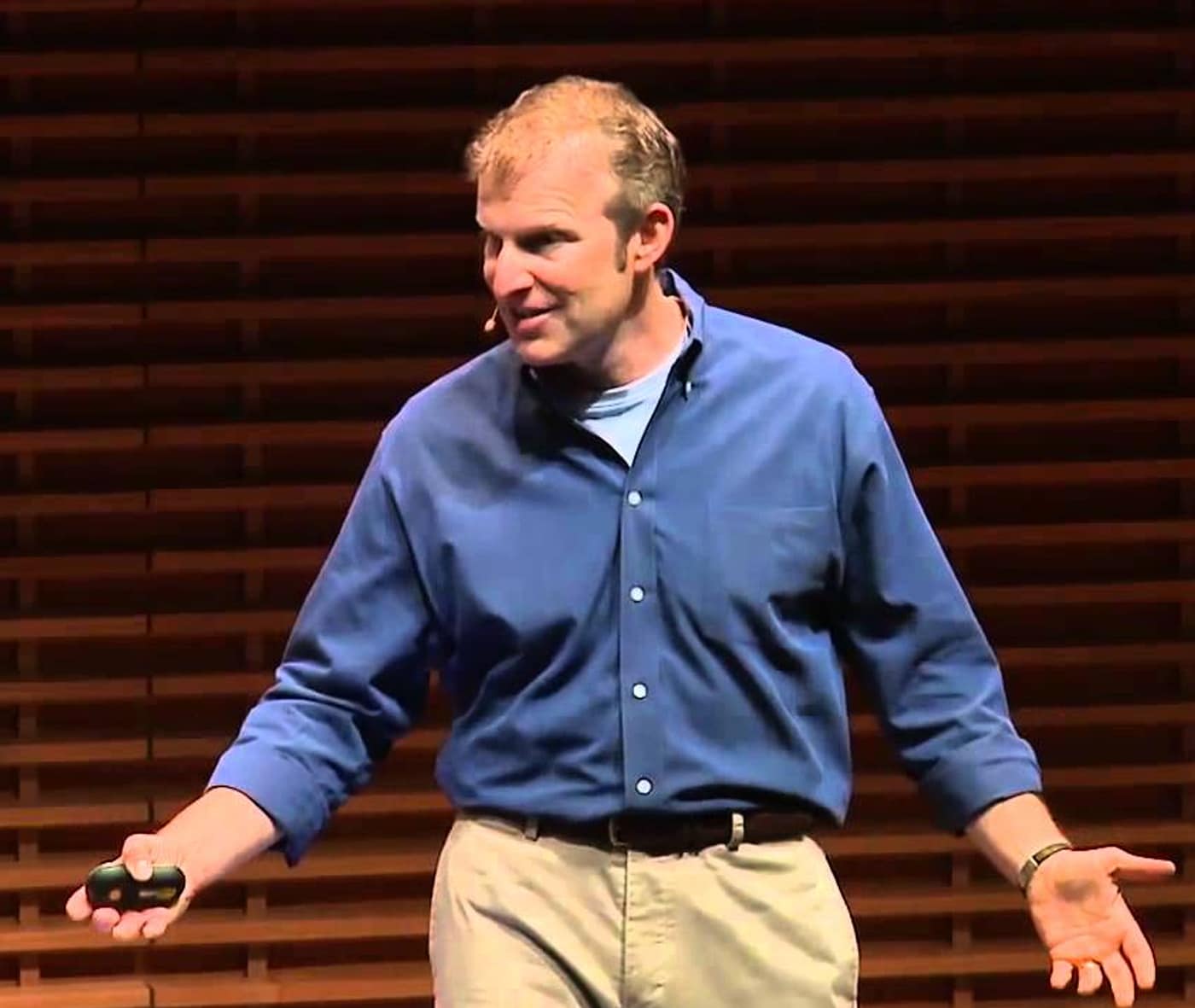
#92
Unlock the Secrets of Effective Communication with Matt Abrahams
Matt Abrahams is a leading expert in communication with decades of experience as an educator, author, podcast host, and coach. As a Lecturer in Organisational Behaviour at Stanford University’s Graduate School of Business, he teaches popular classes in strategic communication and effective virtual presenting. He hosts the award-winning podcast Think Fast, Talk Smart.
In his new book ‘Think Faster, Talk Smarter: How to Speak Successfully When You’re Put on the Spot’, he offers six steps to help improve your spontaneous speaking skills, including how to think faster, manage your anxiety, and structure everything from feedback to small talk to make it more engaging and productive for everyone involved.
Subscribe
Find the show on your favourite player
Summary
03:15 Why we are afraid of public speaking
- Studies show that it’s innate to being human
- Whenever our status is at risk it makes sense that we would be nervous
- We see the fear across all cultures
- Anxiety around speaking typically develops when kids become early teenagers
05:55 How to manage our anxiety about public speaking
- There are lots of tactical drills in the book Think Faster, Talk Smarter
- “The best way to learn communication is to do communication”
- Upwards 75% of us feel anxiety in high-stakes situations
- We can manage our anxiety but never truly calm it
- We have to manage symptoms and sources
- Symptoms are the things we physiologically experience, and sources are the things that initiate the anxiety and exacerbate it
- The single best thing you can do is a deep belly breath – you want the exhalation to be twice as long as the inhale
- “Everybody can find something to help”
11:05 How to control negative self-talk
- Make sure that we practice the different techniques and that we take time to record ourselves and listen
- Have a positive mantra to say to yourself
- Have a question prepared in case you blank or lose your train of thought, which will help bring you back on track
15:47 Letting go of perfectionism
- The drive to be perfect actually works against us
- Be aware of cognitive load: “If I’m judging and evaluating everything I’m saying at the same time as I’m saying it, I have less cognitive focus and attention on what I’m actually saying”
- Turn down the volume of perfection and focus on the connection
- If we focus on just getting it done, we actually recruit more cognitive bandwidth to do it well
- Try it in lower-stakes situations so you begin to build faith in the benefit
18:22 How the simple word ‘because’ can influence people’s actions
- Tina Seelig’s $5 challenge
- One team was able to make $650 dollars in doing so demonstrating how one’s own “privileges” can preclude them from seeing their best solution
- It is not about not what you can do to make the most money, but what you have that’s most valuable
- It’s about asking the right questions
21:17 Spontaneous speaking
- Prepare to be spontaneous
- Matt shares four mind shifts in his book
- Reframing challenges as opportunities in public speaking
28:13 How to blend in your listening skills whilst speaking
- Listening is crucial for effective communication
- Many people often treat it as a means to wait for their turn to speak
- Barriers to effective listening include physical noise (external disturbances), psychological noise (internal thoughts and judgments), and physiological noise (bodily conditions like tiredness or hunger)
- Focusing on the bottom line of what the speaker is saying, rather than just getting the gist, enhances active listening and helps to understand the core message
- Use clarifying questions
31:28 Overcome anxiety about public speaking by effectively structuring your speeches
- Our brains struggle to process information presented as lists, so communicate with connections and a clear beginning, middle, and end
- A narrative or framework includes the problem-solution-benefit structure
- It packages information for better audience digestion
- Various structures like comparison-contrast, past-present-future, or STAR (situation, task, analysis, results) can simplify the process of deciding what to say and how to say it
35:10 How to make your messages memorable and emotionally resonant in speeches or presentations
- Make content relevant and relate it to the audience’s interests
- Utilise storytelling, questions, analogies, and strategic repetition for engagement
- Consciously make efforts to help people remember and engage with content
38:35 The connection between storytelling and leadership communication
- Matt’s mother once said this about the power of simplicity: “Tell the time, don’t build the clock”
- Have a focus message as attention is precious in a busy environment
- Maintain attention with concise, clear, and relevant communication
- Define a clear goal with aspects of information, emotion, and action
- Practice pattern recognition for engagement
40:43 How to be less awkward with small talk
- “Be Interested, Not Interesting” – Rachel Greenwald
- Approach small talk with questions
- Ease pressure on yourself
- Ask follow-up questions and show interest
Links mentioned: